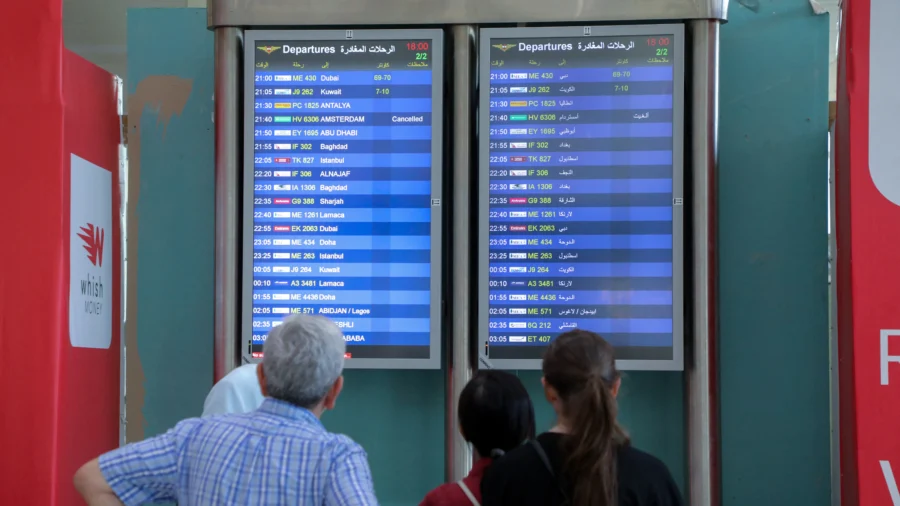Flights to and from Beirut airport were canceled or delayed on Monday as tensions escalated between Israel and the terrorist group Hezbollah after a strike in the Golan Heights killed 12 children and teenagers.
Israeli Prime Minister Benjamin Netanyahu vowed a response from Israel to the rocket attack. Mr. Netanyahu’s office on July 27 quoted him as saying that “Israel will not overlook this murderous attack” and “Hezbollah will pay a heavy price.”
Hezbollah has denied responsibility for the rocket attack, which occurred in the Druze town of Majdal Shams, about seven miles from the Israel–Lebanon border.
Air France said that due to the security situation at the destination, it will suspend flights between Paris-Charles de Gaulle and Beirut on July 29 and 30, 2024.
“Air France is monitoring the situation in Lebanon in real time,” the airline said.
Lufthansa, Swiss, and Eurowings of the Lufthansa Group have decided to suspend their flights from and to Beirut up to and including Aug. 5 due to the current developments in the Middle East, a group spokesperson said.
Lebanon’s Middle East Airlines (MEA) said disruptions to its schedule were related to insurance risks.
The rocket strike in the Golan Heights on Saturday has added to concerns that Israel and the Iran-backed group could engage in a full-scale war.
Israel’s security cabinet on July 28 authorized the government to respond to the strike.
Beirut airport’s flight information board and flight tracking website Flightradar24 show Turkish Airlines also canceled two flights overnight on Sunday.
Turkey-based budget carrier SunExpress, Turkish Airlines subsidiary AJet, Greek carrier Aegean Airlines, Ethiopian Air, and MEA have also canceled flights scheduled to land in Beirut on Monday, Flightradar24 shows.
The airlines did not immediately respond to requests for comment.
Beirut-Rafic Hariri International Airport is Lebanon’s only airport. It has been targeted in the country’s civil war, and previous fighting with Israel, including in the last war between Hezbollah and Israel in 2006.
On Sunday, MEA said it had delayed the departure of some flights set to land in Beirut overnight. Additional delays to flights landing on Monday were then announced due to “technical reasons related to the distribution of insurance risks for aircraft between Lebanon and other destinations”, MEA said.
Hezbollah and the Israeli military have increased cross-border exchanges of fire since the Gaza war began. The conflict has disrupted flights and shipping across the region, including during reciprocal drone and missile attacks between Israel and Iran in April.
Lufthansa has already suspended July night-time flights to and from Beirut due to “current developments” in the Middle East.
Jack Phillips contributed to this report.

